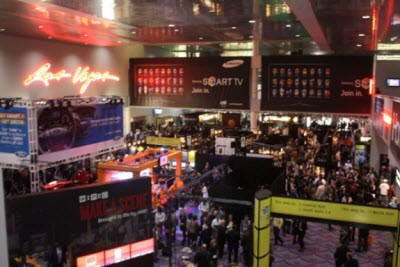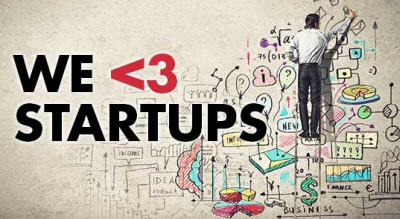VB: So the way to make that bigger is to make DIY easier to do?
Barry: Yeah. Part of it has to be easier. But DIY is a little different. Certain people feel like the harder it is, the more fun it is. It’s not for everybody. But it grows at the same time the “let somebody else do it” part of the business grows, in concert with that effect.
VB: Where do you see some disruption that’s going to happen? I’ve been very curious about how Android going into the living room is going to disrupt a lot of things, like the Android micro game consoles disrupting the big consoles. That hasn’t quite happened. I keep expecting someone like Apple or Google or Amazon to go and do this to Microsoft and Sony. Do you see some disruption like that?
Barry: One of the reasons they haven’t done that, that would be a whole new cohort of developers they’d have to deal with. They have their hands full with the ones they have. We mentioned Microsoft. Everybody seems to focus on the fact that they missed the mobile space. They’re having a hard time protecting their flank just in operating systems, against the Chromebook and all the rest of that. Google’s been making inroads. There was a newspaper in here recently where the whole paper had switched from Windows to Chrome OS. My wife’s school in the town I live in has made that switch.
VB: There’s Google Docs, too.
Barry: Google Docs is great. We have people all over in different locations who can jump on and change things. That’s another thing. You’re going to have a bit of a Wild West in the living room, because you have the game consoles looking for that control – Microsoft a little more overtly than Sony. Then you have all the cable companies. You have people like Apple and Google. Google’s trying Google TV and all this other stuff. Again, this is where my timing thing comes in. That may have been too early.
But the technology is getting there for all these things, especially the wireless technology, and the commercial aspects of this, the relationships between the carriers and the delivery systems. The cables and the satellites and the phone companies are still sorting through that. They’re trying to defend themselves, these entrenched businesses. I say “entrenched” – small-dish satellite is only 20 years old. Cable is really widely distributed, but it’s only 30-35 years old.
These are industries which are dominant now, but are still relatively new, and they’re trying to maintain their control over the delivery of entertainment and information. Notwithstanding the fact that a lot of young folks aren’t getting cable. They get everything they need through the internet. They still want a big TV, but they’re finding other ways to deliver stuff to that.
VB: Do you have an observation about the troubles between content owners and hardware companies? We seem to be seeing more of those conflicts.
Barry: It’s always been there. If you want to see disruptive, look at things like Aereo. In many ways, though, they’re not as stark as they were in the days of the late ‘70s and early ‘80s, up to the Betamax case. You had movie companies and device companies, VCR makers. The Betamax case was Sony versus Universal Studios. Now Sony is a studio. Comcast owns NBC. So you have delivery and you have content. But then you have somebody like Aereo coming along. It’s a matter of, adapt and move forward or get out of the way.
If you don’t look forward at the ways people are accessing this content and the ways it can be delivered, harnessing the technology—You go all the way back 20 years to when you first had Netscape and AOL and it became easy to get on the internet. It still echoes now, this idea that everything should be free on the internet. Things of value, you’ll always be able to attach a price to it. But in the digital world, it’s a question of how you make that transaction. We’ve already had lots of successful inventions and developments over the last 20 years as far as ways to do that — Paypal and Google Checkout and the like. Some of them have been more successful than others.
It’s about things that make the things people want to do easier, more cost efficient, and more accessible. Watching movies whenever you want, watching the ballgame. Going back 25 or 30 years, it was very restrictive. You couldn’t find some things that you wanted to do. Now you can. The people who can deliver that will be the winners.
Then you have other things that people hadn’t ever thought of. Twitter is a great example. It varies from the sublime to the ridiculous.
VB: The CEA has announced Intel CEO Brian Krzanich as a keynote speaker. They said they were going to move into the Internet of things. Is there anything interesting to say about these guys leading off the show?
Barry: That’s one other thing I didn’t mention that is growing, this internet of things. One of the other keynoters is Rupert Stadler from Audi, which represents the increased prominence of the auto industry. But on the internet of things, part of it is related to what I mentioned earlier, the health and fitness area. Blood pressure monitors that you plug right into your iPhone and either record your information or send it to your doc if you’re on some kind of program.
You’ve seen all the predictions, that by 2020 everything will be connected to the internet, including us. As the chips get smaller and you can put them in more things, finding products and devices and services that will resonate is a bigger challenge. Samsung’s Galaxy Gear, for instance, that’s a cool idea, but it also can be viewed as a very expensive accessory item for a smartphone. It has some uses, but it’s not for everybody. Wearable electronics, though, are being used more widely in fitness now than in any other area.
VB: Have you been playing with any fun gadgets?
Barry: The most fun I’ve had with a gadget lately is one called the Sound Pop. It’s about the size of a tennis ball. It comes in nice colors. I had an orange one. It has a suction cup on it, it’s water resistant, and it’s a Bluetooth speaker. It plays music from your phone. It sounds great. You can put it in your shower. It costs 30 bucks or something.
That’s one of the least expensive ones. Bose has one now that’s probably $250. Definitive Technology makes really nice speakers. JBL, all of these companies now are making Bluetooth speakers. Some of them are really good, with something like a docking station, a little slot you can fit your iPad in.
Casio has one of these G-Shock watches out for over a year that can also sync with an iPhone. You can check and see who’s calling and that kind of thing. There’s a lot of activity in that space. Casio, six or eight years ago, had a camera wristwatch. We’ve had wristwatch cell phones. Those were much too big. But this wristwatch space, I think, a lot of it is too aspirational for it to be a huge market.
VentureBeat's mission is to be a digital town square for technical decision-makers to gain knowledge about transformative enterprise technology and transact. Learn More



